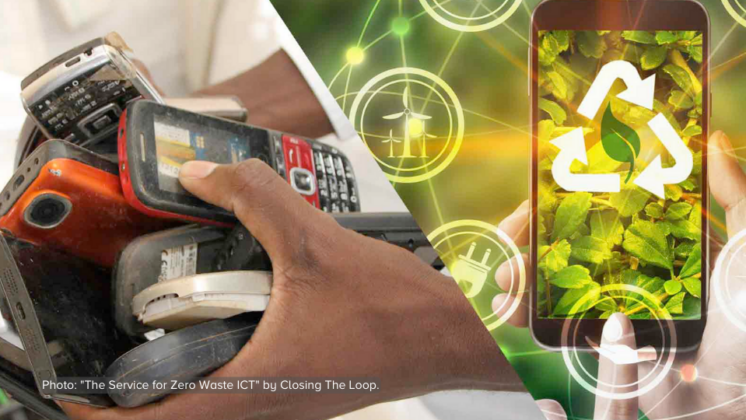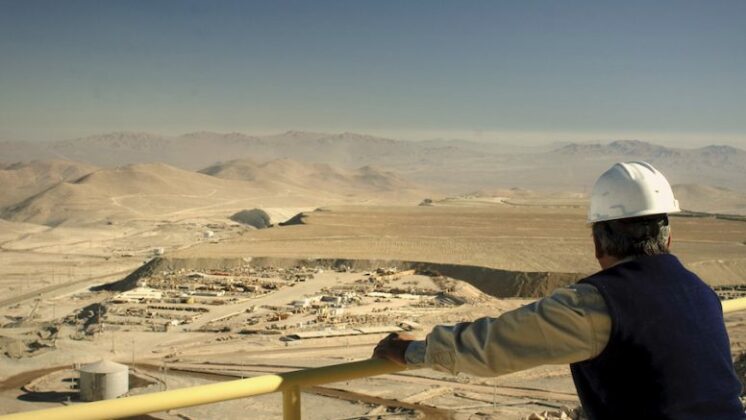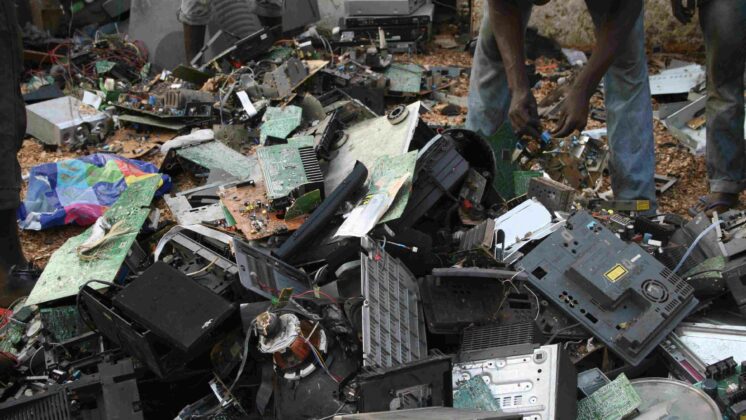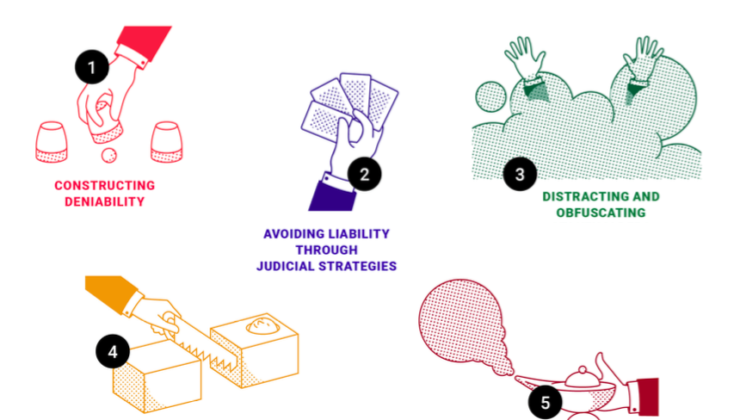An editorial by Prof. Eric Williams of Arizona State University in Discovery News entitled ‘Three Reasons Why a Ban on e-Waste Exports is Wrong’, dated 10 August 2010, is responded to in kind on 13 August, by Mr. Jim Puckett, Executive Director of the Basel Action Network. According to the Basel Action Network (BAN), Prof. Williams’s analysis is wrong in three areas. BAN reprinted each of Williams’ statements and provided an alternative analysis:

To begin, Prof. Williams’ first point is as follows:
“1. Trade bans have negative economic and social impacts by cutting jobs in the refurbishment sector and reducing supply to used markets.
Many people in the developing world make a living from fixing and selling used electronics. Not only is this a source of employment where it is greatly needed, but it also increases access to computers and other electronics that play an important role in the development and education of poor people.
Some export bans such as H.R. 2595 in the United States require that electronics are refurbished in the developed world, making used electronics prohibitively expensive for many, and closing down refurbishment businesses in the developing world.”
Contrary to Prof. Williams’ assertion, trade bans on harmful toxic waste have very positive economic and social impacts. This is especially true in the case of electronic waste when the costs associated with avoiding damage to workers’ health and the environment is considered as part of the economic calculation. When Prof. Williams sends his old computer to China via a waste broker, it is unlikely that he will ever be presented with a bill for the damage done to the worker when she breathes the toxic fumes and smoke, or for the costs when the groundwater is irreparably contaminated.
That is what economists call externalities – a characteristic of a false economic system where the risks and costs are sent to those that are not in a position to avoid or get compensated for the damage. Indeed, all externalities are viewed by economists as economic failures as it is always for more expensive and inefficient to fix damage once it is caused than it is to prevent it in the first place. Laws (like trade bans) are almost always needed to enforce cost internalization. That is why, for example, we make it illegal to dump garbage off the sides of our roadways. We don’t get to reduce our garbage bill by throwing trash out our car window. And we shouldn’t be able to irresponsibly reduce our toxic waste bill by dumping the hazard on to poor people in developing countries. But that is what Prof. Williams seemingly advocates.
Sadly, we’ve heard these arguments before. They were used in the 1980’s to justify exporting chemical factory waste in barrels to the poor in developing countries. Back then, people just like Prof. Williams said, “Hey, exporting this stuff provides jobs for the poor and it is too expensive for us to deal with it!” This might be a less immoral argument – to have the poor take our wastes—were we not talking about electronic waste, which is, in fact, toxic waste. By definition, developing countries do not have the resources to provide adequate societal safety nets (laws, enforcement, education, infrastructure) to safely protect the workforce and the environment from such toxic wastes as we do.
This is precisely the reason the global community banded together to put a stop to exploitative cross border dumping. In 1989, nearly all of the countries in the world created the Basel Convention; then, in 1995, they adopted an amendment to ban the export of all forms of toxic waste from developed to developing countries.
Here in the US, as long as manufacturers continue to make electronics with toxic materials, we must do likewise. Apparently, Prof. Williams does not understand that the global ban is already the norm: he erroneously calls it an idea being “bandied about.” The only thing controversial about the Basel Convention is that a small handful of countries (including the world’s most wasteful country, the US) have so far failed to ratify and implement it a ban that is over 15 years old. H.R. 2595 will bring the US up to the same standard that the rest of the world has been following for a long time now.
Finally, contrary to what Prof. Williams says, a proper legislative remedy would not prevent refurbishment from taking place in developing countries. But it will ensure that claims of refurbishment not be used as the most recent excuse to externalize real costs in the form of non-repairable toxic electronics.
Prof. Williams’ second point, in his own words:
“2. Trade bans push the backyard recycling towards the black market.
While China officially banned imports of end-of-life electronics in 2002, smuggling has replaced official trade and electronics reportedly continues to flow into the country much as before the ban. Substantial amounts of end-of-electronics are still exported from Europe, partly through internal trade within Europe to areas with lax enforcement.
The enforcement challenge also increases the involvement of organized crime. In 2002 members of U.S. environmental NGOs visiting the Chinese town of Guiyu, an informal recycling center, were free to walk the village and interview local workers. Since the ban organized crime has become involved and reporters visiting the town are now driven out.”
Professor Williams’ logic here is suspect. The argument that laws to prevent harmful activity are a bad idea simply because they are poorly enforced is an argument against all laws. We also have a problem with drunken driving in the United States. Do we therefore repeal DUI laws as thousands are killed on our highways each year? How about all the other laws that are hard to enforce: those against murder, rape, and arson?
Clearly, for any law to be effective, there must be adequate deterrents against violations. And the laws need to be crafted in a way in which they can be best implemented. It is self-evident that export bans are more effective than import bans. This is particularly true in the case of waste trade. Perpetrators need to be within the jurisdiction of the law itself, and importing countries are most often poorer and less able to implement the law than the exporting developed countries. For these reasons, the Basel Ban was designed as an export ban enforced in the perpetrator countries. Despite the good intentions of countries like China, import bans are just not as effective.
Prof. Williams’s point about e-waste trade still coming from Europe despite the export ban is also misconceived. European e-waste leakage was largely due to lack of adequate enforcement, a problem now being remedied by new programs there such as IMPEL. There was also a gray area in the law which allowed exporters to claim non-working material as working equipment. That loophole is also now being closed in new legislation.
Now to Prof. Williams’ third point:
“3. Within a decade, more e-waste will be generated in the developing world compared to the developed, waste that without other interventions will be recycled with high environmental impacts.
The underlying premise of a trade ban is that imports from the developed world are the main problem. But research conducted by myself and my colleagues shows that by around 2016, the developing world will generate more waste computers than the developed world. Global volumes of computer e-waste are expected to triple between 2010 and 2025 and by around 2025, the developing world will generate double the developed world’s waste computers. Not surprisingly, developing Asia, due to its high population and rapid growth, is a major contributor to this future waste stream.
Export bans will not only fail to solve the problem of informal recycling, but also cause negative impacts on vulnerable people in the developing world. A broader policy agenda is needed. Surprisingly, there has been no official policy action to directly clean up the impacts of backyard recycling.
One option could be to divert recycling fees in order to pay backyard recyclers to turn in components that are dangerous to process. The United States and other rich countries have a role to play in providing financial and technical support.”
Prof. Williams is an engineer. Therefore it is surprising that he does not mention that hazardous waste is a design flaw. He fails to mention that the ultimate solution is to get the toxics out of our products in the first place. Hundreds of social and environmental organizations join the Basel Action Network in agreeing that we must stop making such poisonous and short-lived products.
But until we can replace toxic ingredients with benign substitutes, and devise incentives to minimize over-consumption, we need to keep the risks and costs of manufacturing toxic products as far upstream as possible. Allowing people to “solve” their problems by seeking cheap and dirty dumping grounds means there is little incentive to solve the toxic design problem. As long as externalization is condoned under the lie of economic development, the true solutions found in green design will not likely be realized.
Of course it is true that the developing world is part of the problem of waste generation. They are and will increasingly be generating their own waste. But why should they be sacrificed as the dumping ground for all of the world’s e-waste? Because they are poor? Because their lack of environmental and worker protection laws makes it cheaper to dump waste on them? This is what Prof. Williams shamefully advocates. Follow Prof. Williams’ thinking, and all the rich neighborhoods in the US should send their trash to poor neighborhoods.
Dumping on the poor is a horror. It violates the principle of environmental justice, a policy embraced in this country under Republican and Democratic administrations alike. This principle rightly declares that no peoples, simply due to their economic, gender, racial or other status should bear a disproportionate burden of harm from environmental impacts.
In Prof. Williams’ world, does environmental justice mean anything?
Eric Williams is a professor in the department of civil and environmental engineering in the School of Sustainability at Arizona State University in Tempe. He helps run the IT and Environment Initiative and has testified at a hearing on e-waste held by the U.S. House Committee on Science and Technology. His views are not necessarily the views of Discovery News.
Jim Puckett is Executive Director of the Basel Action Network.








